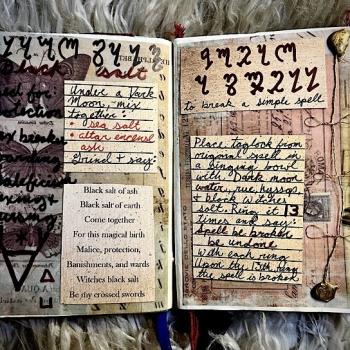Another interesting bit from yesterday was Rev. Loehr’s comments on the Jesus Seminar, where he was the only Unitarian fellow. In general he was complimentary toward the goals and the results of the Seminar, but he had a legitimate concern.
When you strip Jesus of the virgin birth, miracles, and resurrection, what you have left is a Wisdom teacher. And when you focus only on the Wisdom, you lose the distinctive elements of Christianity. To a certain extent, that’s not bad – think of all the conflict that occurs because of religious arguments (not political arguments disguised as religious conflicts – that’s another issue for another time). True Wisdom is universal.
But, as Rev. Loehr said: “If it’s ‘the same as’ then it’s lost its soul.” Universal Truth divorced from its cultural context speaks to the head, not the heart.
By definition, if you de-mythologize a religion, you lose your myths – your sacred stories. And if Joseph Campbell taught us anything, it’s that humans need myths to live by.
So, speaking as a Unitarian Universalist, it isn’t enough to form a center around the common teachings of the world’s Great Religions – though that would be a good start. We also need a common story, a myth that speaks to our souls as well as to our intellect. Can a bunch of overly intellectual UUs compose such a story?
As Pagans, we have many stories – the myths and legends of our Celtic, Norse, Greek, Egyptian and other ancestors. But they aren’t necessarily our sacred stories. Those stories we’re still adapting, editing, and writing anew. Which isn’t surprising, considering contemporary Paganism is only about a hundred years old, and has only been honest about its origins for perhaps the last 25 or 30.
Uniting the head and the heart; merging the intellect and the soul. Perhaps, just perhaps, that’s work UU Pagans are uniquely qualified to do.
















